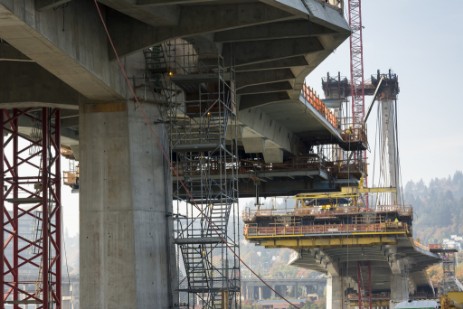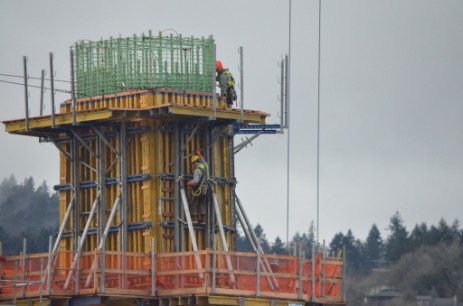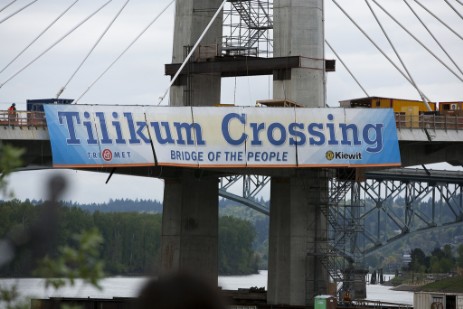Willamette River Transit Bridge - Northwest Geotech

Main menu:

Willamette River Transit Bridge



Geotechnical Engineering/Special Inspection/Materials Testing
TriMet, in partnership with several agencies and
municipalities, is currently constructing a 1,720-foot
long four-pier five-span cable-stayed bridge over the
Willamette River. The bridge will be supported by two
main towers (each over 180 feet high), four landside
abutments, and over 3.5 miles of cable. In addition to
the light-rail line and bus route, the bridge will
include two 14-foot wide bicycle and pedestrian paths.
NTI’s parent company, Northwest Geotech, Inc., and Earth
Mechanics, Inc. were selected to perform the
geotechnical investigations and engineering for final
design and construction as part of the winning D/B team.
NGI scoped, estimated, and performed the final
geotechnical explorations and the seismic and static
laboratory testing program, and is the geotechnical
engineer of record for the explorations and subsurface
interpretation, bridge approach embankments, shaft
foundation load testing program, various retaining
walls, and verification of shaft foundation construction
conditions. NGI interpreted all subsurface conditions
and developed the foundation data sheet along with
authoring the Geotechnical Data Report and the
Supplemental Geotechnical Design Report. Geotechnical
engineering responsibility included surcharging and
preloading of the approach embankments to mitigate
settlement, developing the highly successful O-Cell
testing program for the 10-foot diameter shaft
foundation elements, and construction monitoring of all
geotechnical related elements of the project. NTI is
currently providing materials testing and inspection in
support of the contractor’s quality control program,
including visual welding inspection of temporary and
permanent bridge elements, ultrasonic weld evaluation of
over one hundred pile splices, inspection and testing of
thousands of cubic yards of reinforced concrete,
in-place nuclear density testing of structural fills and
asphaltic concrete, ultrasonic inspection of rail
connections, inspection of proprietary anchors, and
inspection and testing of the post-tensioned concrete
bridge spans